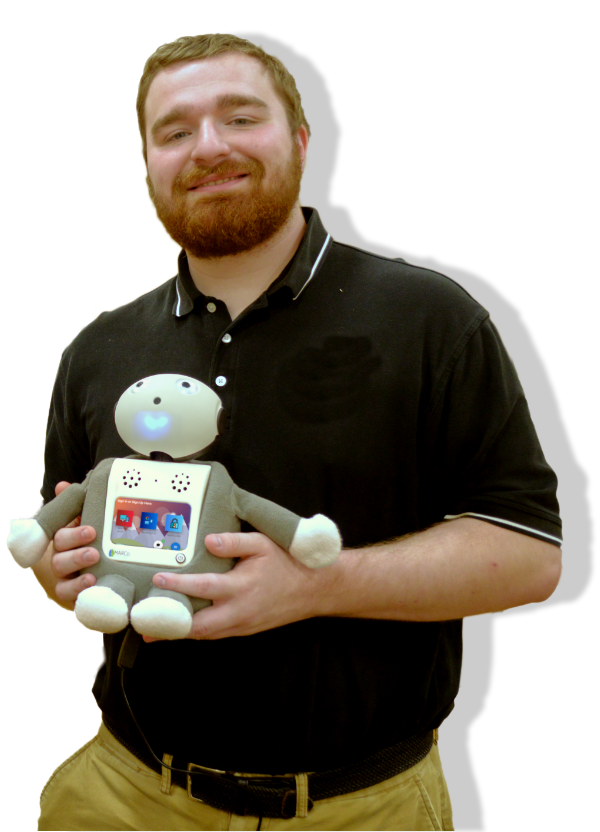
Mental health concerns are on the rapid rise and so many of them are unattended yet. There are so many concerns that humans face these days ranging from depression, stress, anxiety, burnout, among other issues.
This data also put you into tense that 9.2% of YOUTH (over 2.2 million youth) cope with severe major depression.
With so many issues, the professional mental healthcare is unavailable to most of the people.
- 10,470 marriage and family therapists (40,250 needed; 29,780 available)
- 15,400 psychiatrists (60,610 needed; 45,210 available)
- 26,930 mental health counselors (172,630 needed; 145,700 available)
- 48,540 social workers (157,760 needed; 109,220 available)
- 57,490 psychologists (246,420 needed; 188,930 available)
- 78,050 school counselors (321,500 needed; 243,450 available)
In such a scenario, the development of mental health chatbots came into existence. What are mental health chatbots? Let us take a look.
What are mental health chatbots?
A mental health chatbot is an application that offers an interface to humans where they can talk about their mental health problems. As the individual types in the concerns and problems, the chatbots come up with a solution and offer a holistic approach.
These chatbots enable an individual to handle his mental health concerns on his own unless he needs a mental health professional to treat his condition. The robot companions improve mental health as the individual can talk to the chatbots without the fear of judgment.
Initially, certain chatbots were invented and were fed certain conversational templates that the chatbots kept on repeating during a conversation. But these days, chatbots evolve through the concept of natural language processing and machine learning. Their conversation improves as it handles more human interactions.
How do the mental health chatbots work?
The mental health chatbots are designed to hold and maintain a conversation with the individual who talks about his mental health issues (CBT – Cognitive Behavioral Therapy). These chatbots are based on the concept of CBT. which is known to handle negative thinking patterns, rearrange them into positive thoughts.
The mental health chatbots offer following features:
- Come up with a topic to begin the conversation.
- Ask directional questions to understand the individual’s condition in a better way.
- A follow-up to see if the concerns were handled efficiently.
The NLP algorithm behind the chatbots comes with Sentiment Analysis Feature that manages the direction of the conversation. Every trigger word is connected to a decision tree. This tree is designed to gather as much information as possible.
Once it gathers the understanding of the problem, it can come up with a feasible solution. And the solution can be anything – a plain conclusion, advice, or offering to reach out to professional help.
These robot companions are designed to improve mental health by offering a listening ear to the individuals. They are not designed to replace the mental healthcare professionals, instead, they can work as assistants to the mental health doctors. And hence, these applications are designed in a way that maintains the secrecy and confidentiality of the individual’s mental state, his thoughts, and secrets, if any.
Wysa: Product Overview:
Wysa is a mental health chatbot that comes in the form of a mobile app with in-app purchases. It has been into existence since 2015 and is a product from Columbia, Cambridge and Touchkin universities.
Wysa is known to work on CBT as well as Dialectical Behavior Therapy (DBT). CBT is known to handle casual moods and thoughts. But DBT handles unhealthy thought patterns, suicidal thoughts, and thoughts that revolve around self-destruction.
The latest addition to Wysa is advice for yoga and meditation. With a monthly subscription fee of $29.99, you can have a more personalized approach with a human professional.
Conclusion:
Mental health chatbots are helpful because the individual can open up and talk freely without the anxiety of visiting mental healthcare professional. Moreover, you can talk to these robot companions to improve your mental health to some extent.
Jacob Boyle
Jacob Boyle serves as CEO and CTO of MARCo Technologies. As CEO, his primary functions include defining the company direction, managing contractors and employees, and spearheading outreach and customer discovery. As CTO, he has handled the development of MARCo, having designed and produced the existing MARCo units; coordinate with manufacturers; develop software for the online edition; and oversee continued R&D. He also served as the Technical Lead in the National Science Foundation’s I-Corps accelerator program on behalf of the company.





